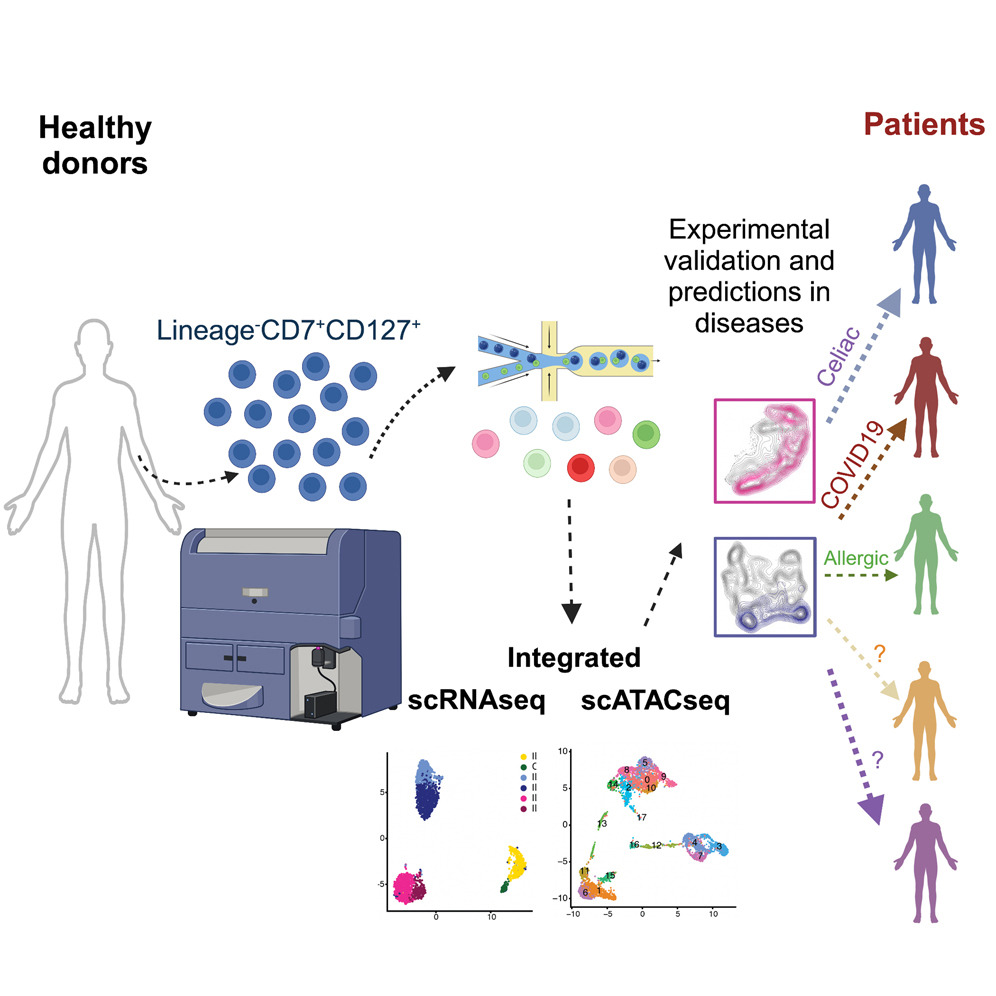Dynamic single-cell regulomes characterize human peripheral blood innate lymphoid cell subpopulations

SUMMARY
Innate lymphoid cells (ILCs) are plastic immune cells divided into 3 main subsets, characterized by distinct phenotypic and functional profiles. Using single cell approaches, heightened heterogeneity of mouse ILCs has been appreciated, imprinted by tissue signals that shape their transcriptome and epigenome. Intra-subset diversity has also been observed in human ILCs. However, combined transcriptomic and epigenetic analyses of single ILCs in humans are lacking. Here, the authors, led by GCIR member Professor Camilla Jandus, show high transcriptional and epigenetic heterogeneity among human circulating ILCs in healthy individuals. They describe phenotypically distinct subclusters and diverse chromatin accessibility within main ILC populations, compatible with differentially poised states. They validate the use of this healthy donor-based analysis as resource dataset to help inferring ILC changes occurring in disease conditions. Overall, this work provides insights in the complex human ILC biology. The authors anticipate it to facilitate hypothesis-driven studies in patients, without the need to perform single cell OMICs using precious patients' material.
This work has been funded by Swiss National Science Foundation, the Helmut Horten Foundation the Associazione Italiana per la Ricerca sul Cancro.
Link to full article: https://doi.org/10.1016/j.isci.2023.107728
Lab website: https://www.janduslab.com/
Why is it important?
In addition to Natural Killers (NK), there is another family of immune cells that lack antigen-specific receptors, the innate lymphoid cells (ILCs), which play important roles in immune defence against pathogens and regulate adaptive immunity. ILCs are present in all tissues, but limited evidence is currently available on their differentiation, regulation, and function in humans.
The authors of this article created an atlas of ILCs circulating in healthy subjects using single-cell OMIC analysis: single-cell sequencing assay for RNA and for transposase-accessible chromatin (scRNAseq and scATACseq). They found great heterogeneity in transcriptome mapping and epigenetics within the ILC family. With increasing evidence that ILCs play crucial roles in pathologies ranging from autoimmunity to inflammation and cancer, this atlas, performed under physiological conditions, could now be used as a database to predict ILC behaviour in pathologic conditions.
21 Sept 2023